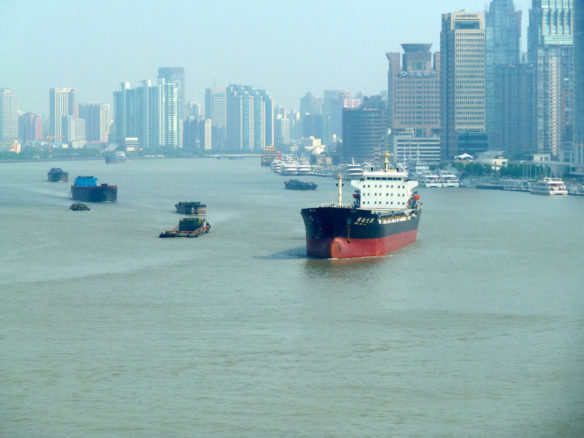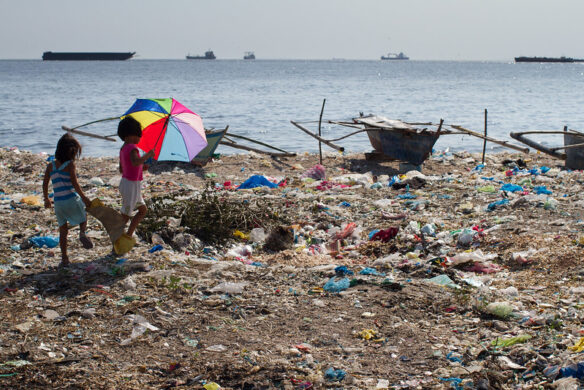
Photograph: © SAF — Coastal Care
Excerpts;
United Nations Secretary-General Ban Ki moon has welcomed the steps agreed upon on October 28, 2016, by the members of the International Maritime Organization (IMO) to address greenhouse gas emissions from international shipping.
According to a statement issued by Mr. Ban’s spokesperson, the steps include: efforts to limit sulphur emissions; a mandatory data system for fuel consumption; strengthened implementation of energy-efficiency regulations; and a road map for developing by 2023 a comprehensive IMO strategy on reduction of greenhouse gas emissions from ships.
“Welcoming these important steps, the Secretary-General calls for urgent and ambitious action to limit the greenhouse gas emissions from global shipping [which] are projected to rise significantly given the critical role that shipping plays in the global economy,” said the statement.
Further to the statement, Mr. Ban called on IMO members, in partnership with the maritime industry, to promote further progress on the reduction of greenhouse gas emissions from ships to contribute to the objective of the Paris Agreement on climate change, which enters into force on 4 November 2016…
Read Full Article, UN News Center (10-28-2016)
Ship engine emissions adversely affect the health of inhabitants of coastal regions; Science Daily (07-19-2016)
Ship emissions adversely affect the health of inhabitants of coastal regions. This was the main finding of a study on the influence of ship engine emissions on macrophages in the lungs. Since macrophages also play a key role in lung diseases such as COPD, the study is important for understanding the health risks of ship exhausts…
Sea Traffic Pollutes Our Lungs More Than Previously Thought, Science Daily (11-20-2015)
New data show that the air along the coasts is full of hazardous nanoparticles from sea traffic. Almost half of the measured particles stem from sea traffic emissions, while the rest is deemed to be mainly from cars but also industries and natural particles from the sea…
“FREIGHTENED – The Real Price of Shipping,” a movie by multi award-winning filmmaker Denis Delestrac-©-2016; (03-31-2016)
90% of the goods we consume in the West are manufactured in far-off lands and brought to us by ship. The cargo shipping industry is a key player in world economy and forms the basis of our very model of modern civilisation; without it, it would be impossible to fulfil the ever-increasing demands of our societies. Yet the functioning and regulations of this business remain largely obscure to many, and its hidden costs affect us all. Due to their size, freight ships no longer fit in traditional city harbours; they have moved out of the public’s eye, behind barriers and check points…
Super-sized ships: How big can they get? Independent (10-21-2014)
Despite the physical limits and risks, ships of more than 450m are anticipated within the next five years…
Worldwide Ship Traffic Up 300 Percent Since 1992, AGU (11-29-2014)
Maritime traffic on the world’s oceans has increased four-fold over the past 20 years, likely causing more water, air and noise pollution on the open seas, according to a new study quantifying global ship traffic…









